TMJ Treatment West Palm Beach
Relieve Jaw Pain & Restore Function
Temporomandibular joint disorder (TMD) is a general term used to describe the jaw pain that is felt by the muscles that move the jaws and the joint. Located where the lower jaw inserts into the base of the skull (TMJ), the signs and symptoms of TMD can vary greatly from patient to patient and can be rather complex, but we can help with effective TMJ treatment in West Palm Beach. Call us today to let us help you out of pain.
Why Choose Palm Beach Dental Excellence for TMJ Treatment?
- Advanced, Modern Solutions for Complete Care
- Patient- and Comfort-Focused Approach
- Multiple Payment Options Available
What Is TMJ Disorder?
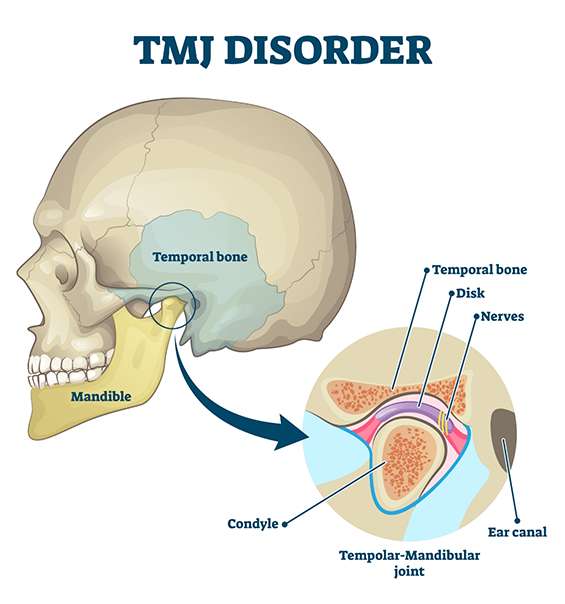
TMJ disorder occurs when the joints located on either side of the jaw become inflamed or damaged. The TMJ (temporomandibular joint) connects to the base of the skull and allows for fluid movement when opening and closing your mouth. However, when a problem develops that is due to bruxism (teeth grinding or clenching), stress, facial injury, or a misaligned bite, pain and reduced oral movement can occur.
Symptoms of TMJ Disorder
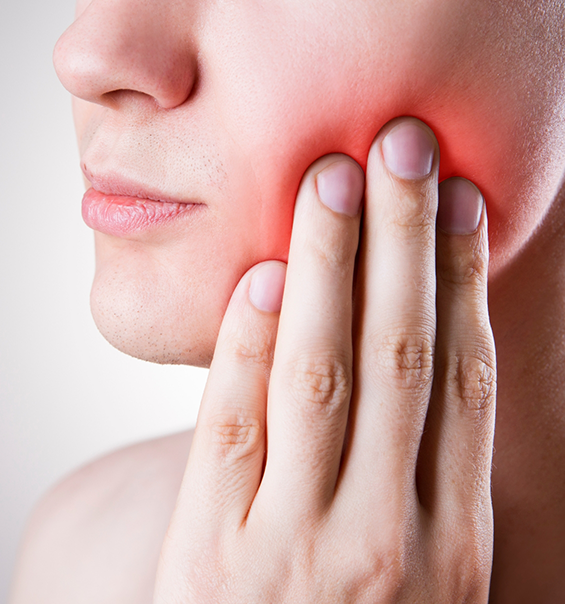
- Pain and tenderness when using these muscles or joints. The pain can be greatly intensified by aggravating these areas through chewing, grinding (bruxism), and clenching the teeth.
- Most of the time, the pain only affects one side. It can, however, affect both sides on occasion.
- You may find that your range of lower jaw movement is limited. This can make it more difficult to eat and even talk. Lock-jaw and stiffness of the jaw muscles and joints can occur, especially when you wake up in the morning. You may even notice that your lower jaw deviates to one side.
- You may hear clicking and popping sounds from the joints affected.
- Consistent and chronic headaches.
- Pain that radiates to the teeth, neck, or shoulders.
- Pain that feels like it is coming from the ear canal or ringing of the ears (tinnitus).
- Feeling that somehow your bite is “off.”
Types of TMJ Treatment
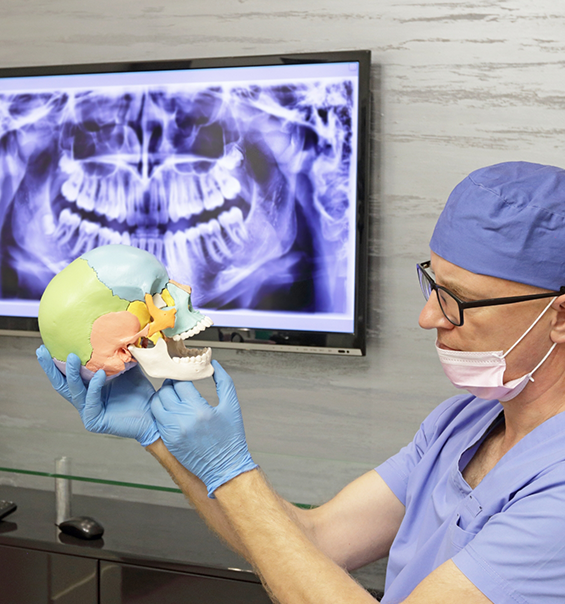
If you are experiencing any of the symptoms we listed above, you are likely suffering from TMD. With our help, we can find the root cause of your pain and get to work relieving it using simple and non-invasive treatments.
Equilibration / Occlusal Adjustments
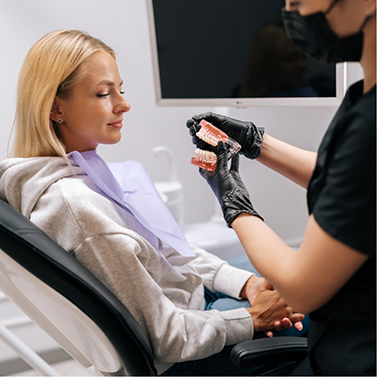
When examining your mouth and jaw, our team may determine that the cause of your TMD is bite misalignment. To remedy the problem, we can administer equilibration/occlusal adjustment. This process involves altering various teeth so that the jaw and bite are better aligned. Not only does this create a more fluid motion but also reduces tension and stress on your jaw joints.
Occlusal Splints
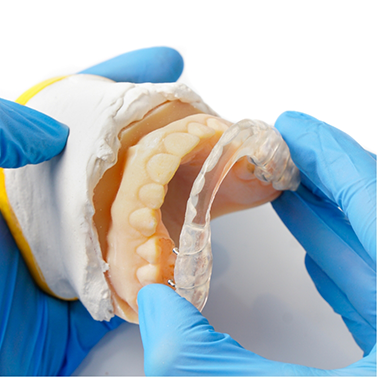
Should bruxism or stress be the reason for your chronic jaw pain, we can suggest a customized occlusal splint. This device is worn most frequently at night on the top or lower arch of teeth. Similar to a mouthguard, the device keeps teeth from touching but also delivers relief to the jaw joints, allowing it to function smoothly.
TMJ Home Remedies
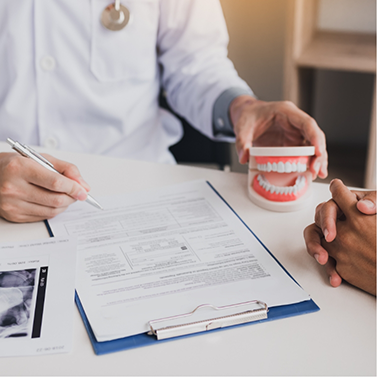
There are various TMJ home remedies that you can also practice that can help alleviate discomfort. They can be combined with other forms of treatment provided in-house. Dr. Asinmaz can discuss these different methods with you during your appointment, ensuring that you are better prepared to care for your mouth and jaw at home. To learn more, make sure to click the link below.
TMJ HOME REMEDIESTMJ Treatment FAQs
Can TMJ Be Permanently Cured?
If you’ve been suffering from a sore or stiff jaw for a longer period of time, it’s only natural to wonder whether your condition might be permanently resolved with TMJ treatments. Some providers offer different therapies that don’t usually provide permanent results, such as BOTOX injections to relax your jaw muscles, or a TENS machine that uses low-voltage electrical currents to alleviate aches and tension.
Thankfully, Dr. Asinmaz offers solutions in West Palm Beach that are designed to provide longer-term relief from your TMJ symptoms. These procedures can permanently address concerns that impact your jaw tension or cause bite misalignments, thereby reducing the impact of your TMD.
Is TMJ Treatment Safe?
Are you wondering whether there are potential risks associated with receiving TMJ treatments? Usually, these solutions are considered safe for most people when provided by a qualified professional, such as Dr. Asinmaz.
Some services that some providers offer (like BOTOX injections) can cause different side effects, but our practice utilizes treatments with minimal risks that are more straightforward. Adjusting the biting surface of your teeth or providing an oral appliance to correctly position your jaw is unlikely to cause adverse effects other than potential temporary aches as your mouth acclimates to the changes.
How Long Does It Take for a TMJ Splint to Work?
It may vary slightly based on your individual circumstances, but patients are often asked to wear their splint to bed every night. If you follow Dr. Asinmaz’s wear-time instructions, you might notice changes in your TMJ symptoms relatively quickly. With that said, they are unlikely to all fade at once.
Instead, you’ll likely notice that your issues and aches dissipate more gradually as the splint helps shift your jaw to a healthier position. Many people experience marked improvements after six weeks, though complete relief can take closer to three to six months.
How Long Does Occlusal Equilibration Take for TMJ?
Again, the time it takes for your treatment to improve your TMJ concerns can depend on your unique situation, but many patients experience relief soon after their appointment. Once Dr. Asinmaz slightly adjusts the shape of your enamel to improve your bite alignment, it might not be long before you start to feel better.
For instance, many patients notice changes after a single visit. However, others require two or three adjustments to evenly distribute their bite force before seeing results.
